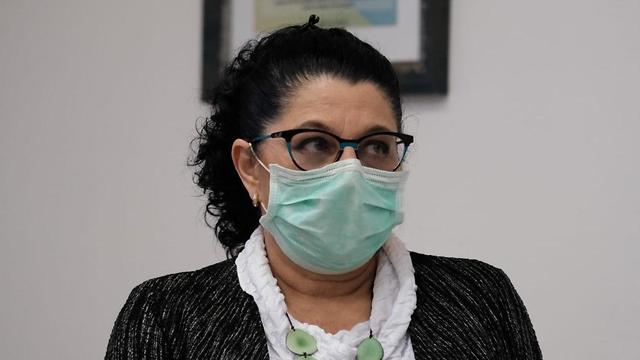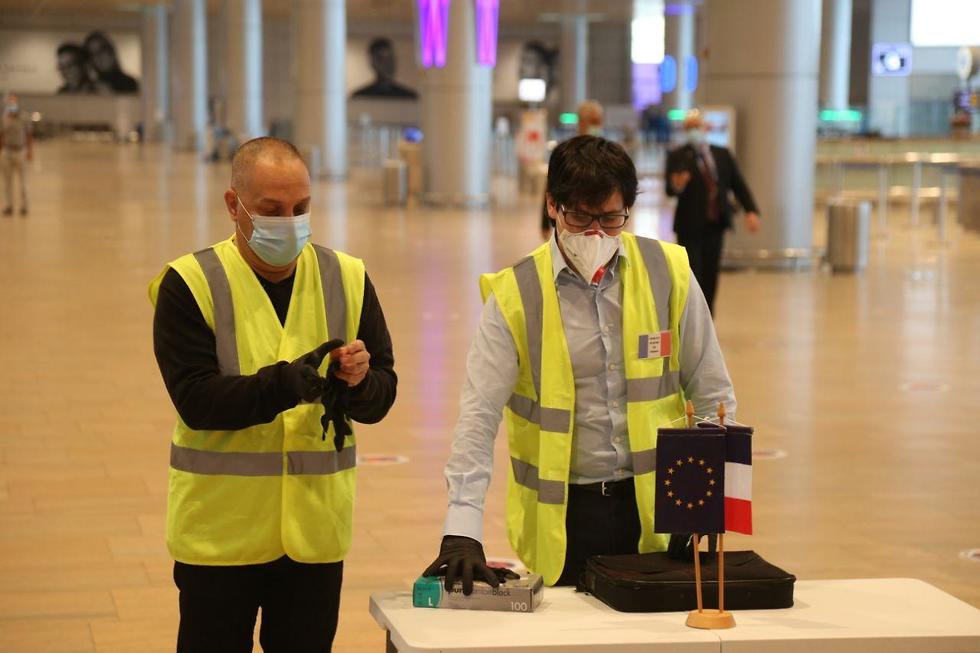Getting your Trinity Audio player ready...
The head of Public Health Services at the Health Ministry, Prof. Prof. Siegal Sadetzki, said Tuesday that the growing number of new coronavirus cases in Israel appears to point to the start of a second wave of the disease.
"From a three-week period in which we were seeing 20 [new] patients a day, and things seemed to be improving, we are gradually increasing. When you look at it, it looks like the beginning of a wave," she said.
Sadetzki warned that the lack of adherence to regulations aimed at stemming the spread of the virus was leading to the increase in the number of cases.
"The main question today is … to what extent we are determined to be aware of social distancing, masks, hygiene, and nonconformity [to the regulations]," she said.
"I'm sorry to break it to you, but we can see that without it, the disease returns."
Israel has had 216 new cases of coronavirus in the past 24 hours, the Health Ministry said Tuesday morning.
There are currently 3,598 active cases in the country, with 36 people in serious condition, including 27 patients on ventilators. To date, the virus has claimed 302 lives in Israel.
4 View gallery


A vendor at Carmel Market in Tel Aviv working without a face mask despite regulations
(Photo: Itay Blumenthal)
The professor said that the rise in coronavirus infections is different to the first wave, pointing out that since the economy reopened, Israel has seen the number of new virus patients doubling daily.
"We anticipated the first wave, we were prepared for it," Sadetzki told the Knesset members on the committee to deal with the coronavirus pandemic.
"Of course there have been unexpected issues, but we knew to look for patients among those returning from abroad and to conduct epidemiological investigations. Most patients were already in isolation,” she said.
Now, however, Sadetzki told MKs, "a large number of the infections are among students, which is not something we saw in the first wave."
Sadetzki also said that she believed the public simply did not understand the guidelines.
"The layout of the directives is very complex, and I don't think it's a form that the public can abide by," she said.
Committee chair MK Yifat Shasha-Biton of Likud asked Sadetzki if the increase in the number of patients was not due to the increase in the number of tests.
The professor conceded that there had been more positive results but stressed that the proportion of positive tests was higher than before.
"There is morbidity in 57 communities, it's not something we can ignore," said Sadetzki. "It means there are more patients than we have located, and to me that is worrying."
Knesset Member Mickey Levy from Yesh Atid accused Sadetzki of sowing panic.
"It's an increase, but it's not significant," Levy said.
"Be careful about how you conduct yourselves, do your part, but relax," said the MK.
Sadetzi replied: "It is my duty to reflect the data as I see it. We are experiencing an increase in the number of cases and also in the nature of the cases. There is no hysteria here, there is a warning here."
Meanwhile, a senior Health Ministry official on Tuesday warned that the expiration of the coronavirus regulations overnight could lead to disaster.
The emergency measures were only in place for three months in accordance with Basic Law: The Government and had not been dealt with by parliament, even though MKs voted late Monday to pass a law that allows ministers to resign their Knesset seats and be replaced by other members of their own party.
"This means that isolation and all other regulations cannot now be enforced," the official said.
"People who come from abroad will not be placed in isolation and we will be like Brazil within two weeks."
New legislation, which has only passed its first reading, will now go to the Knesset Constitution, Law and Justice Committee ahead of its second and third readings.
The new law was expected to be passed by MKs on Tuesday.




